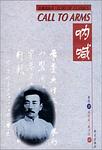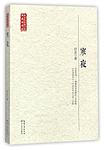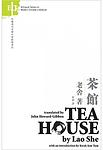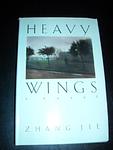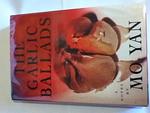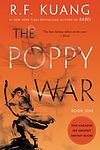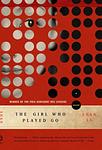The Greatest Chinese "Historical fiction, Fiction" Books Since 1900
Click to learn how this list is calculated.
This list represents a comprehensive and trusted collection of the greatest books. Developed through a specialized algorithm, it brings together 300 'best of' book lists to form a definitive guide to the world's most acclaimed books. For those interested in how these books are chosen, additional details can be found on the rankings page.
Genres
Historical fiction is a genre of literature that combines fictional stories with real historical events, settings, and characters. These books often take place in a specific time period and are based on research and factual information, but also include imaginative elements to create a compelling narrative. Historical fiction allows readers to experience the past in a unique and engaging way, while also providing insight into the social, cultural, and political issues of the time.
Countries
Date Range
Reading Statistics
Click the button below to see how many of these books you've read!
Download
If you're interested in downloading this list as a CSV file for use in a spreadsheet application, you can easily do so by clicking the button below. Please note that to ensure a manageable file size and faster download, the CSV will include details for only the first 500 books.
Download-
1. Call to Arms by Xun Lu
"Call to Arms" is a collection of short stories that vividly capture the impact of the socio-political upheaval during the early 20th century in China. The narratives delve into the lives of ordinary people, predominantly the peasantry and the lower classes, who are often caught in the throes of societal change and struggle for survival. Through a blend of realism and symbolism, the stories explore themes of tradition versus modernity, the human condition, and the quest for justice, reflecting the author's critical engagement with the national and cultural issues of his time.
-
2. Rickshaw Boy by Lao She
"Rickshaw Boy" is a novel about a young man living in Beijing in the 1920s who struggles to escape poverty and achieve personal independence. Despite his hard work and determination, he is continuously set back by societal and personal misfortunes, including failed business ventures, a disastrous marriage, and the loss of his rickshaw. The book serves as a critique of traditional Chinese society, illustrating the harsh realities of life for the working class during this time period.
-
3. Balzac and the Little Chinese Seamstress by Dai Sijie
This novel tells the story of two teenage boys sent to a remote mountain village for re-education during China's Cultural Revolution. There, they meet a local tailor's daughter, who becomes their friend and the object of their shared affection. The boys discover a hidden suitcase filled with forbidden Western classics in Chinese translation, and their lives are forever changed. The books not only awaken their passion for literature, but also allow them to educate the Seamstress, ultimately leading to a heartbreaking love triangle and a tale of personal freedom against the odds.
-
4. Cold Nights by Ba Jin
"Cold Nights" is a poignant love story set in the backdrop of China's turbulent political climate during the 1940s. The narrative follows the protagonist, Wan Da, as he navigates through the hardships of life, love, illness, and death. As his wife, Zhenzhen, falls ill with tuberculosis, Wan Da's struggle to secure medical help for her amidst the chaos of war paints a vivid picture of human endurance and the power of love. The book also explores themes of existentialism and the human condition, offering a profound look at life's hardships and the strength of the human spirit.
-
5. Teahouse by Lao She
"Teahouse" is a historical drama that explores 50 years of Chinese history (1898-1948) through the microcosm of a Beijing teahouse. The narrative follows the lives of the teahouse owner and his customers, reflecting the social changes, political turmoil, and cultural shifts of the time. The story provides a deep insight into the Chinese society, its traditions, and the impact of Western influence. It also highlights the struggle of the common people amidst corruption, oppression, and the collapse of traditional values.
-
6. Heavy Wings by Zhang Jie
"Heavy Wings" is a novel that explores the societal changes in China during the late 20th century. It follows the story of a group of innovative engineers striving to design and build China's first large-scale commercial aircraft. Despite facing numerous challenges such as lack of resources, political interference, and personal struggles, they remain committed to their mission, symbolizing the spirit of perseverance and innovation. The story is a reflection of China's journey towards modernization and technological advancement.
-
7. Half of Man is Woman by Zhang Xianliang
This novel provides a deeply personal account of the author's experiences during China's Cultural Revolution and his subsequent imprisonment in a labor camp. The protagonist struggles with the harsh realities of his imprisonment, including starvation and physical abuse, while also grappling with his own identity and the societal expectations of masculinity. His release and subsequent marriage only further complicate his quest for self-understanding, as he navigates the challenges of reintegrating into society and maintaining a relationship with a woman who has her own traumatic past.
-
8. Love In A Fallen City by Eileen Chang
"Love in a Fallen City" is a collection of novellas and short stories that delve into the complexities of love, betrayal, and societal expectations in mid-20th century China. The stories primarily focus on women navigating the challenging terrain of romance and marriage in a rapidly changing society. The titular story captures the tumultuous relationship between a divorced woman and a playboy against the backdrop of World War II, exploring themes of survival, traditional values, and personal transformation. Through elegant prose and deep psychological insight, the book portrays the collision of Eastern and Western cultures and the personal struggles of individuals caught in the throes of historical upheaval.
-
9. Spring Moon by Betty Bao Lord
Set against the backdrop of a changing China from the late Qing Dynasty through the Cultural Revolution, the novel follows the life of Spring Moon, a young noblewoman of the Soong family. As she navigates the complexities of tradition and modernity, Spring Moon experiences personal tragedies and triumphs while witnessing the seismic shifts in Chinese society. Her story is one of love, loss, and resilience, reflecting the broader historical forces at play that reshape her country and her family's destiny. Through her eyes, readers experience the clash of old values with new ways, and the struggle to find harmony amidst chaos.
-
10. The Garlic Ballads: A Novel by Yan Mo
The novel is a harsh critique of the Chinese government's agricultural policy. Set in 1980s China, it tells the story of the farmers of Paradise County, who are encouraged by the government to plant garlic, only to find that the government can't or won't buy their crops, leading to violent protests. The narrative is centered around three characters - Gao Yang, who has been arrested for leading the protests; his blind father, Gao Ma, who continues to struggle with the garlic harvest; and Jinju, the woman both men love. The book is a powerful exploration of corruption, love, the human spirit, and the struggle for justice in an oppressive regime.
-
11. Snow Flower and the Secret Fan by Lisa See
Set in 19th century China, the novel centers around the lifelong friendship of Lily and Snow Flower. Despite their different social classes, the two communicate through a secret language known as "nu shu" written on a fan. The story explores the rigid societal norms of the time, particularly the practice of foot binding and arranged marriages. As they navigate through the hardships of their lives, their friendship is tested, leading to a devastating betrayal that impacts their relationship.
-
12. War Trash by Ha Jin
The novel is a fictional memoir of a Chinese soldier who is captured during the Korean War and spends several years in American POW camps. He struggles to survive in the brutal conditions and navigate the political rivalries among the prisoners, while holding onto the hope of repatriation and the fear of being labeled a traitor by his own country. The narrative explores themes of loyalty, survival, and the human cost of war.
-
13. The Poppy War by R. F. Kuang
The book is a fantasy novel set in a world inspired by China's 20th century history. The protagonist, a war orphan, defies societal expectations by acing the empire-wide examination and earning a place at the prestigious military academy. However, her triumph is short-lived as she becomes embroiled in a violent conflict, which forces her to delve into the depths of her own magical abilities, inspired by shamanism. The story intertwines the brutal realities of war, mythology, and the exploration of power in a deeply divided society.
-
14. The Girl Who Played Go by Shan Sa
Set in the 1930s during the Japanese occupation of Manchuria, the novel intertwines the lives of a young Chinese girl, a master of the ancient board game Go, and a Japanese soldier. As the girl seeks refuge from the turmoil of war in the strategy and beauty of Go, she encounters the soldier in the public square where they silently engage in a series of games. The board becomes a silent battleground reflecting their personal and political struggles. Their growing connection and the insights they gain into each other's cultures and vulnerabilities lead to a poignant and tragic conclusion, underscoring the senselessness of war and the transcendent power of human connection and empathy.
-
15. Memories Of Peking by Lin Hai-yin
"Memories of Peking" is a poignant memoir that captures the essence of childhood in 1920s Beijing through the eyes of a young girl. The narrative weaves together a tapestry of family life, traditional customs, and the everyday struggles and joys experienced within the hutongs, or narrow lanes, of the city. Through vivid anecdotes and emotional depth, the book offers a nostalgic look at a bygone era, highlighting the innocence of youth amidst the socio-political changes of the time. The author's lyrical prose and rich descriptions bring to life the cultural landscape of early 20th-century China, making it a touching and evocative read.
-
16. Family by Ba Jin
"Family" is a compelling novel set in the early 20th century China, focusing on the Gao family, an aristocratic clan bound by traditional Confucian values. The story, primarily through the eyes of three young brothers, explores the struggles between old customs and emerging modern ideas during a time of societal upheaval. The protagonist, Juexin, grapples with familial duty and personal happiness, reflecting the broader conflict between individual desires and societal expectations. As the family members confront their destinies, the novel delves into themes of freedom, love, and the quest for reform, capturing the complex dynamics of family loyalty and the pains of a society in transition.
Reading Statistics
Click the button below to see how many of these books you've read!
Download
If you're interested in downloading this list as a CSV file for use in a spreadsheet application, you can easily do so by clicking the button below. Please note that to ensure a manageable file size and faster download, the CSV will include details for only the first 500 books.
Download